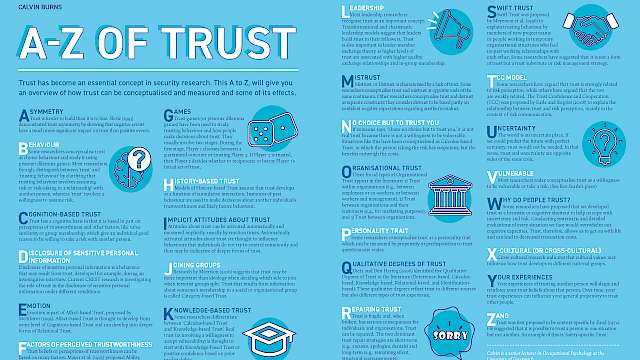To misquote Seba Smith (1840), “There are more ways than one to skin a cat, so there are more ways than one to spend research funding.” On concluding my tenure as CREST’s director, I was asked by the research council who administered our funding to reflect on the value of a centre model. This is a question that should concern all research teams and government funders in our community, so at the risk of being self-indulgent: What does CREST do that cannot be achieved by contract funding or an in-house research team?
Some of their biggest successes are projects that resonate not today but as time passes.
Risk mitigation
For those responsible for stopping today’s threats, it is both reasonable and understandable to want agile, rapid research that helps today. But dealing with today means not preparing for tomorrow. Centres spread their bets across today and tomorrow. Some of their biggest successes are projects that resonate not today but as time passes. Who could have anticipated, back in 2016 when she started her CREST-funded PhD, that Christina Winter’s analysis of vetting contexts and how to get the most out of video-enabled interviews would have been so prescient?
Knowledge quality
Most knowledge in academia is never published—it’s in a file drawer under ‘failed attempts’ or ‘stuff everyone knows.’ Centres have access to this file drawer and can expose it fully, giving users a truly balanced answer. They can also promote knowledge quality. Centres can applaud null findings and ensure their science is open in ways that are challenging for commercial models who depend on taking the next step.
Economies of scale
Over its first five years, CREST researchers secured a further £23m of follow-on funding to continue projects relevant to the needs of the UK’s security and intelligence community. That’s more than a three-fold return. Centres can start balls rolling in ways that single projects can’t. Leading one of CREST’s short-term, commissioned projects, Karen Douglas’s review of the psychology of conspiracy theories was an important flag in the ground of a now burgeoning area. Elsewhere, the rapid emergence of cross-cultural interviewing research was driven forward by a focus across several of CREST’s projects.
Impact
By far the biggest difference a centre can bring is impact. The visibility of a centre becomes a focal point not solely for specialists but for a wider community with an appetite to learn and apply best practice. An independent review of CREST’s impact revealed examples of evidence being used to support operations, training, and tradecraft (Edwards, 2020). Yet, reviews are restricted to what is known, and the reach of a centre into the culture and thinking of an organisation is far greater than what is measured by a Likert scale.
Paul Taylor is professor of psychology at Lancaster University and the University of Twente. At Lancaster, he founded and directed CREST from 2015 to 2021. In May 2021, Paul became the first UK Chief Scientific Advisor for Policing.
Read more
- Edwards, J. (2019). Impact report. A review of the impact of the research projects conducted through the. Centre for Research and Evidence on Security Threats (CREST). https://crestresearch.ac.uk/download/3427/impact-report-19-028-03.pdf
Copyright Information
As part of CREST’s commitment to open access research, this text is available under a Creative Commons BY-NC-SA 4.0 licence. Please refer to our Copyright page for full details.
IMAGE CREDITS: Copyright ©2024 R. Stevens / CREST (CC BY-SA 4.0)







